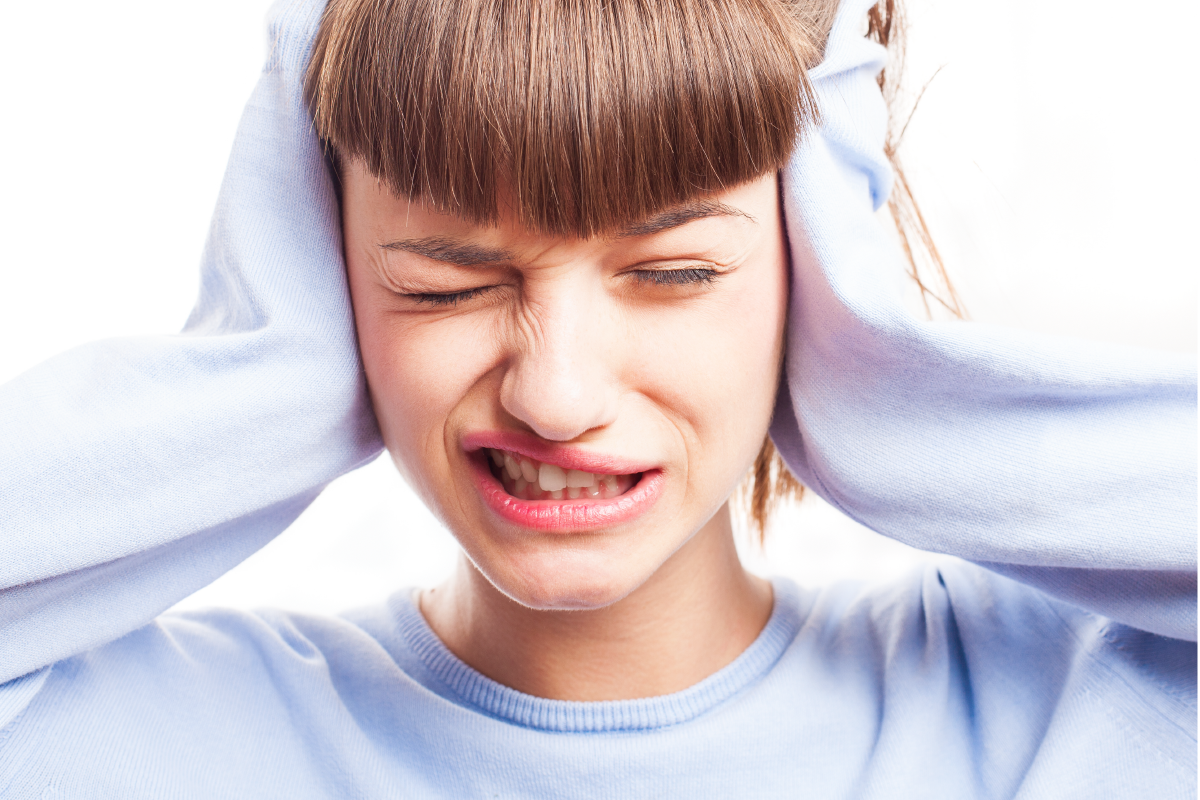What Is Tinnitus
Tinnitus is the subjective perception of noise inside the ear without there being an outside sound source causing it. It is not a disease, but rather a symptom of an anomaly in the hearing system or the upper auditory pathways. Multiple sensorineural and conductive hearing loss types can be accompanied by tinnitus, most notably a noise-induced hearing loss.
The subjective sounds can be perceived in one ear, in both ears, or as a centralized ‘in the head’ noise. Tinnitus is mostly described as a ringing noise.
However, these sounds can present themselves in different forms, namely :
- Hissing
- Buzzing
- Clicking
- Roaring noise.
This hearing anomaly impacts the life of about 10% of society, 10% of whom the symptoms significantly impair their quality of life. Although tinnitus is most commonly accompanied by a hearing loss, people with normal hearing acuity can equally suffer from tinnitus. Stress, fatigue, caffeine, tobacco, and alcohol are non-auditory factors that influence the occurrence and severity.
How To Treat Tinnitus
A multidisciplinary team approach including the expertise of an audiologist, an ENT specialist, and a psychologist is often needed for optimal treatment. Occasionally, the added expertise of a hearing aid acousticien or other specialized doctors will prove necessary.
Unfortunately, science has not yet identified a definitive cure for tinnitus. Consequently, alternative treatment methods with variable therapeutic effects are proposed:
- Brain stimulation techniques designed to stimulate the auditory cerebral cortex of the brain can be used to reduce the occurrence of this painful anomaly.
- Hearing aids are used to mask the tinnitus sound. They also cause the individual to be less aware of the tinnitus noise during conversation.
- Noise-generators can be used to create a soothing background noise to mask tinnitus. These systems are particularly useful for sleeping.
- Professional support and rehabilitation programs can reduce the negative emotional impacts of tinnitus.
- Relaxation techniques such as Yoga and other forms of physical activity such as walking and swimming can reduce the effects of tinnitus.
- Medications and homeopathic drugs are beneficial for certain cases.
- Alternative approaches like acupuncture and naturopathy can be used.
Tinnitus is best managed when the individual fully understands the condition, its irritants, and treatment options.




